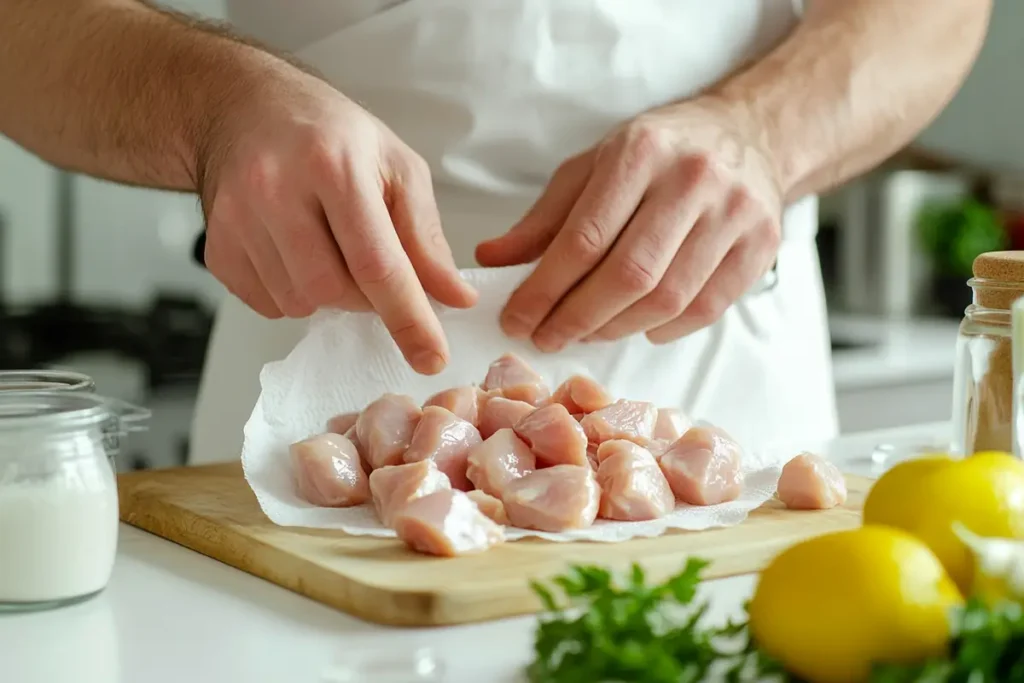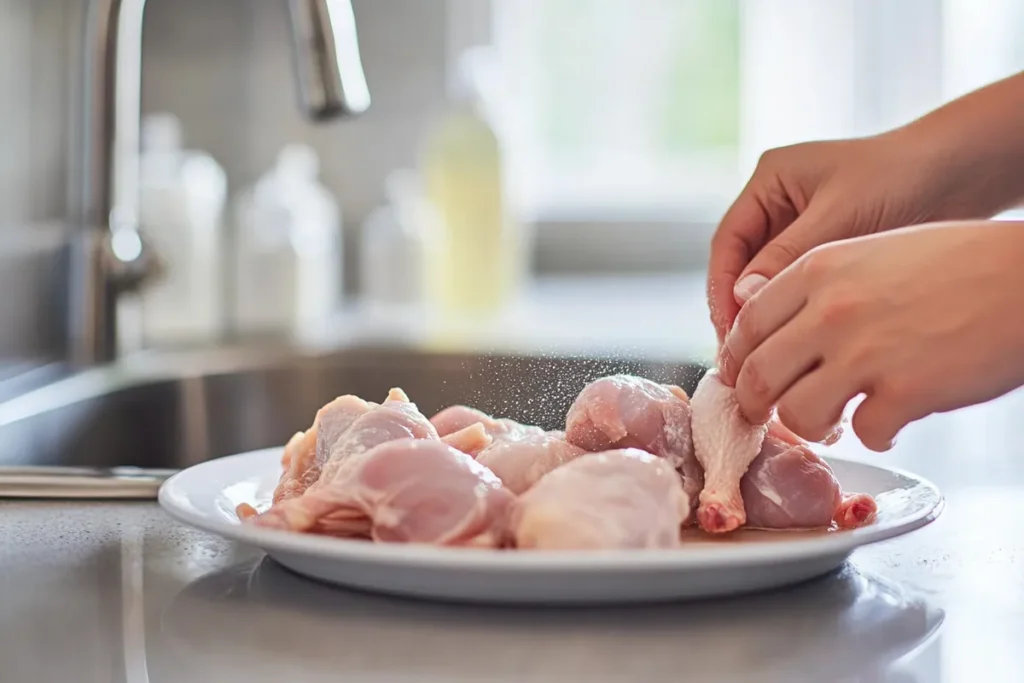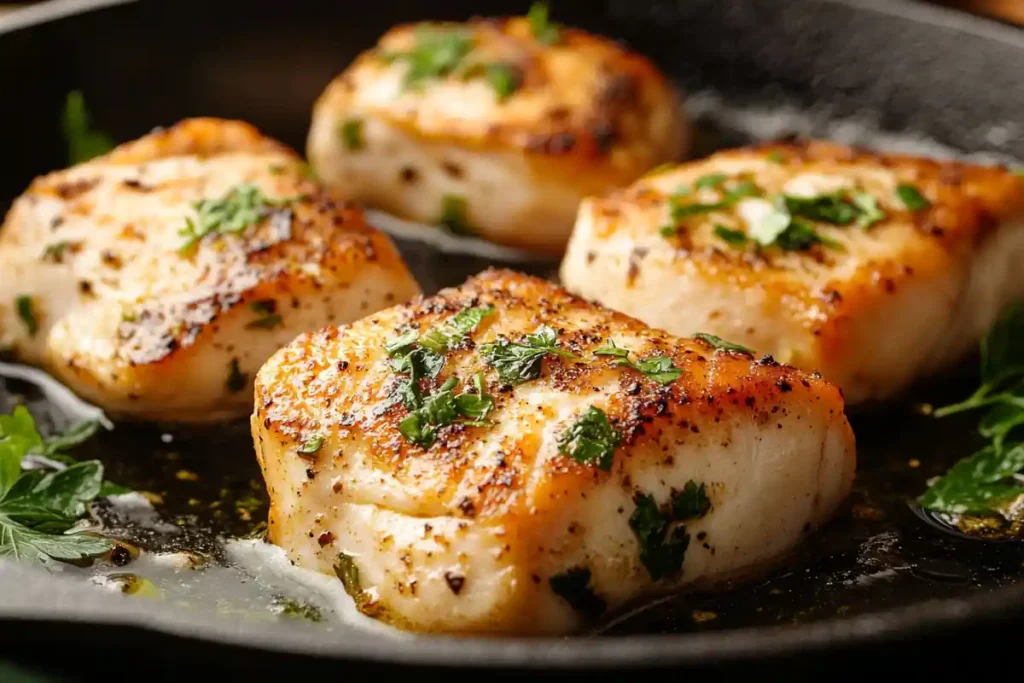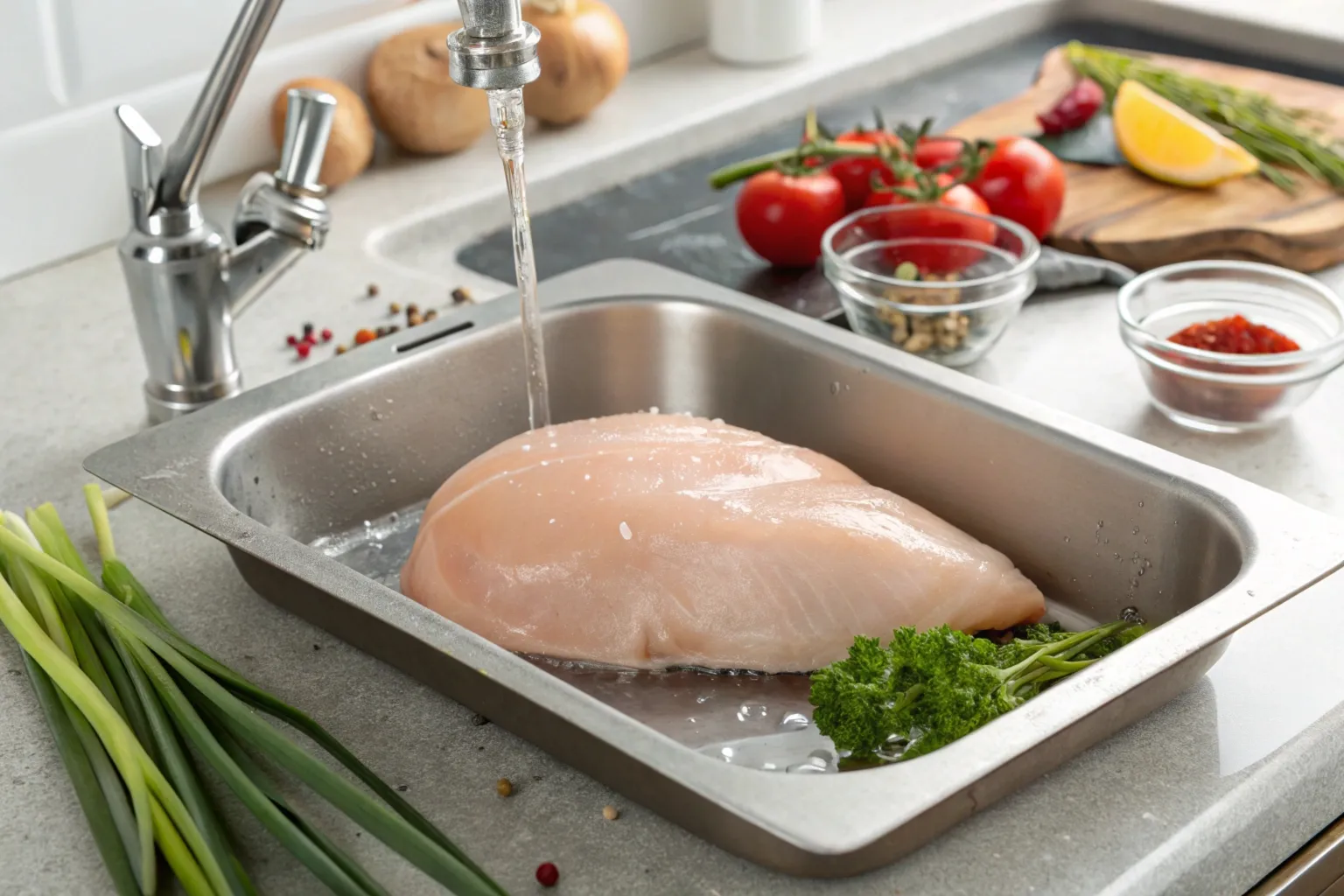Should you wash diced chicken before cooking? Learn whether rinsing diced chicken is safe or necessary and discover the best handling practices to ensure safe and delicious meals.
Undoubtedly, many home cooks wonder: Do you wash diced chicken before cooking? Basically, confusion arises from traditions passed down for generations. However, official food safety guidelines advise caution. Indeed, washing raw chicken may spread bacteria. Comparatively, proper cooking methods ensure safety better than washing ever could. Therefore, understanding the facts helps you maintain a clean kitchen and protect your health.
Do You Wash Diced Chicken Before Cooking? Understanding Food Safety and Raw Chicken
Initially, it is important to understand why raw chicken demands careful handling. Generally, raw poultry can carry harmful pathogens like Salmonella or Campylobacter. Consequently, these germs may cause foodborne illnesses. Equally, bacteria thrive on moist surfaces and spread easily. Undoubtedly, proper safety measures are crucial.
Further, when you handle diced chicken, these small pieces increase surface area. Basically, more surfaces mean more potential contact points for germs. Additionally, tiny cuts expose the meat’s interior to the environment. Thus, practicing good kitchen hygiene becomes even more critical.
Do You Wash Diced Chicken Before Cooking? Common Myths
Many people believe rinsing chicken removes germs. However, water rarely kills bacteria. Conversely, running water can splash bacteria around, contaminating countertops. Eventually, this leads to more risk.
In reality, cooking chicken at an internal temperature of 165°F kills harmful organisms. Therefore, washing does not make chicken safer. Instead, it often increases the risk of cross-contamination.
The Role of Bacteria on Raw Chicken
Raw chicken naturally hosts bacteria. Conversely, these microbes become harmless once you cook chicken thoroughly. Basically, high heat destroys pathogens. Therefore, proper cooking always outweighs washing.
Proper Cooking as the Best Defense
Explicitly, achieving an internal temperature of 165°F neutralizes bacteria. Consequently, focusing on correct cooking times and methods ensures safety. Hence, washing becomes unnecessary.
For tips on preparing diced chicken, see Easy Diced Chicken Recipes for Flavorful Meals.
Do You Wash Diced Chicken Before Cooking? Official Guidelines
Undoubtedly, official guidelines from the USDA discourage washing raw chicken. Generally, experts agree that washing provides no benefit. Meanwhile, rinsing often spreads bacteria to utensils, dishcloths, and nearby foods.
Eventually, consumers must recognize that visually removing slime or residue does not guarantee safety. Moreover, patting the chicken dry with disposable paper towels is safer and simpler. Thus, relying on heat, rather than water, ensures safe dining.
Do You Wash Diced Chicken Before Cooking? Practical Kitchen Tips
Basically, avoid placing raw diced chicken directly under running water. Instead, if you spot debris or bone fragments, remove them with a clean paper towel. Afterward, discard the towel immediately.
Additionally, always wash your hands thoroughly with soap and warm water after touching raw poultry. Particularly, sanitize your cutting boards, knives, and countertops. Furthermore, never let raw chicken juices contact ready-to-eat foods.
Understanding Cross-Contamination
Cross-contamination occurs when bacteria from raw chicken spread to other foods. Comparatively, washing under running water splatters droplets everywhere. Consequently, bacteria land on kitchen surfaces. Finally, they may transfer to fresh produce or utensils.
By not washing, you reduce these risks. Indeed, a cleaner environment results, making your cooking safer and simpler.
Using Clean Utensils and Cutting Boards
Specifically, always use separate cutting boards for raw meats and fresh vegetables. Furthermore, sanitize tools and surfaces with hot, soapy water. Eventually, maintaining strict hygiene standards prevents illness.
Learn more about cooking diced chicken effectively in How to Cook Diced Chicken Without Drying it Out.
Do You Wash Diced Chicken Before Cooking? Preparing Diced Chicken Safely Without Washing

Indisputably, you can prepare diced chicken without washing. Initially, ensure your chicken is fresh and properly stored. Another important step involves checking the chicken for visible contaminants. If you see bone fragments, gently remove them with a clean utensil.
Afterward, pat the diced chicken dry using paper towels. Consequently, this removes excess moisture, allowing seasonings to stick better. Indeed, dry chicken browns more efficiently, enhancing flavor. Thus, you avoid unnecessary rinsing.
Do You Wash Diced Chicken Before Cooking? Understanding Cross-Contamination
As mentioned, cross-contamination drives the no-wash recommendation. Equally, controlling bacterial spread is easier when you skip rinsing. Therefore, invest in proper storage and thawing methods to reduce extra moisture in the first place.
Storing Raw Chicken Properly
Always store raw chicken in sealed containers on the bottom shelf of your refrigerator. Consequently, any drips cannot contaminate other foods. Likewise, label and date containers to keep track of freshness.
Proper Thawing Methods
Thaw chicken in the refrigerator, not on the counter. Indeed, slow, controlled thawing reduces bacterial growth. Comparatively, microwaving can also be used, but cook immediately afterward.
Alternative Methods to Ensure Cleanliness

Although experts discourage washing, some cooks still prefer cleaning methods. Eventually, cultural traditions or personal comfort levels influence this choice. Nonetheless, if you insist, consider safer alternatives.
For instance, some cooks wipe chicken pieces with a damp paper towel instead of rinsing. Consequently, this method limits splashing. Additionally, if a vinegar or salt solution is used, thoroughly sanitize the sink afterward. Basically, it’s about minimizing spread, not eliminating bacteria.
Wiping Chicken Instead of Running Water
Gently patting and wiping surfaces removes unwanted particles. Indeed, this method is gentler and less risky. Still, focus on handwashing and sanitizing your work area.
Importance of Handwashing
Moreover, always wash your hands with warm soapy water for at least 20 seconds before and after handling raw chicken. Equally, consider disposable gloves for extra protection.
Kitchen Hygiene Routines
Subsequently, develop a routine. For example, clean countertops with a bleach solution or hot soapy water. Additionally, sanitize sinks, faucets, and handles frequently. Consequently, a rigorous cleaning routine promotes a safer environment.
Explore high-protein breakfast options in Chicken Breakfast Recipes: Delicious & High-Protein.
Cooking Techniques That Ensure Safety
Even if you never wash chicken, thorough cooking guarantees safety. Therefore, invest in a reliable meat thermometer. Insert it into the thickest part of the chicken and ensure it reads 165°F.
Proper cooking methods like roasting, grilling, or simmering in soups kill pathogens. Eventually, you can choose any cooking style you prefer. Afterward, trust that heat eliminates bacteria better than rinsing.
Using a Meat Thermometer
A thermometer provides accuracy. Basically, it removes guesswork, ensuring no undercooked portions remain. Furthermore, it helps you achieve perfect doneness.
Letting Chicken Rest After Cooking
Allowing chicken to rest for a few minutes after cooking lets juices redistribute. Equally, it ensures even heat distribution. Basically, rest time enhances both flavor and safety.
Recognizing When Chicken Is Done
Properly cooked chicken shows no pinkness in the center. Additionally, juices run clear. Hence, rely on temperature and visual cues to confirm doneness.
For chicken breakfast ideas, check out Is it Good to Eat Chicken for Breakfast? Benefits & Recipes.
Flavor and Texture Considerations

Sometimes, people assume washing chicken improves flavor or texture. However, washing adds water rather than flavor. Indeed, water can dilute marinades and seasoning blends. Moreover, patting chicken dry helps seasonings adhere better, resulting in tastier meals.
Dry surfaces brown more effectively, creating a delicious crust on sautéed or grilled chicken. Thus, skipping the rinse step can actually improve your dish’s overall taste. Comparatively, marinating chicken infuses flavors deeper than any wash could.
Using Spice Rubs and Marinades Instead of Washing
Marinades and dry rubs penetrate the meat’s surface. Consequently, they offer robust flavor profiles. Basically, focus on seasoning, not washing.
Importance of Removing Excess Moisture
If excess moisture concerns you, blot with paper towels. Eventually, this ensures crispiness during cooking, especially for sautéed or roasted diced chicken.
Balancing Flavors Through Seasoning
Experiment with various herbs, spices, and citrus juices. Indeed, these elements enhance flavor far more than a simple rinse. Likewise, consider brining to lock in moisture and tenderness.
Curious about chicken pairings? Learn more in Do Eggs and Chicken Go Together?
Cultural Perspectives and Traditions
In certain cultures, washing raw chicken is deeply ingrained. People may have learned it from family or community traditions. Nevertheless, modern understanding of food safety encourages a different approach. Basically, respecting cultural practices while staying informed is key.
You might share knowledge with friends and relatives who still wash chicken. Eventually, explain the risks and suggest safer alternatives. Likewise, if tradition is important, focus on thorough cleaning afterward and proper cooking temperatures.
Cultural Reasons for Washing Chicken
Some believe washing removes unpleasant odors or slime. Meanwhile, others learned this habit from older generations. Comparatively, today’s information changes these perceptions.
Adapting Traditional Methods
Try blending tradition with modern safety. For example, wipe chicken gently instead of rinsing, then cook thoroughly. Additionally, explain these practices to family members, ensuring everyone’s health.
Encouraging Open Dialogue
Discuss food safety at home. Undoubtedly, open conversations help spread awareness. Thus, everyone benefits from safer handling practices.
Maintaining Kitchen Cleanliness and Organization
Effectively managing your workspace makes a significant difference. Undoubtedly, a clean, well-organized kitchen supports safer handling practices and reduces confusion. Basically, designate specific areas for handling raw poultry and keep them away from ready-to-eat foods. Furthermore, store cleaning supplies in a separate cabinet to prevent accidental food contamination. Altogether, these measures create a safe cooking environment.
To achieve this, consider using color-coded cutting boards. For example, use a red board for raw meats and a green board for vegetables. Consequently, this visual reminder helps avoid mixing raw chicken with salad greens. Indeed, it simplifies the cooking process and ensures each ingredient is prepared under optimal conditions.
Additionally, keep your knives sharpened and easy to identify. Basically, using a sharp knife reduces slipping and minimizes uneven cuts. Another advantage is that precise cuts on diced chicken help it cook evenly. Consequently, achieving perfect doneness is easier, supporting overall safety.
Considering Individual Preferences and Practical Realities
While guidelines are clear, some home cooks still feel uncertain. Another reason for confusion may come from observing family members who rinsed chicken for decades. Initially, it may feel uncomfortable abandoning old habits. Nevertheless, evidence and expert advice reassure us that not washing chicken is safer and more effective.
If you find it challenging to change your routine, consider a gradual approach. Firstly, try patting your chicken dry instead of washing it. Eventually, as you gain confidence, you’ll trust these updated methods. Conversely, if you remain hesitant, focus on reinforcing other safety measures like frequent handwashing, sanitizing surfaces, and using a thermometer.
Ultimately, confidence in the kitchen grows with knowledge and practice. Undoubtedly, adapting modern methods protects everyone’s health. Thus, by shifting away from washing and concentrating on proper cooking, you simplify your culinary process. Likewise, you honor both tradition and safety, ensuring that each meal you prepare is both delicious and risk-free.
FAQs: Do You Wash Diced Chicken Before Cooking? and Related Questions
Should you wash diced chicken?
Basically, experts advise against washing diced chicken. Indeed, running water can spread bacteria around the kitchen. Instead, pat it dry with a clean paper towel. Moreover, focus on proper cooking temperatures to kill harmful bacteria.
Does chicken need to be washed before cooking?
Generally, chicken does not need washing. Thorough cooking at 165°F is sufficient to ensure safety. Indeed, washing often increases the risk of cross-contamination. Therefore, rely on proper cooking rather than washing.
How do you clean chicken cubes?
If you feel the need to clean chicken cubes, gently wipe them with a damp paper towel. However, avoid running water. Furthermore, maintain strict hygiene by cleaning surfaces and washing hands. Most importantly, cook the chicken thoroughly afterward.
How do you wash chicken after cutting it?
Food safety guidelines recommend not washing chicken after cutting. Conversely, focus on removing any visible debris with a paper towel. Another key step is sanitizing your cutting board, knife, and countertops. Basically, thorough cooking remains the primary way to ensure safety.
Conclusion: Do You Wash Diced Chicken Before Cooking? Final Thoughts
Eventually, the question Do you wash diced chicken before cooking? finds a clear answer. Expert guidance and food safety standards say washing is unnecessary and potentially harmful. Indeed, patting the chicken dry, maintaining a clean kitchen, and cooking it properly are the best approaches.
Basically, rely on heat rather than water to keep your meals safe. Additionally, adopt safe handling practices and trust that thorough cooking kills bacteria. Comparatively, washing only introduces more contamination risks. Consequently, embrace modern guidelines and enjoy delicious, safe chicken dishes every time.

